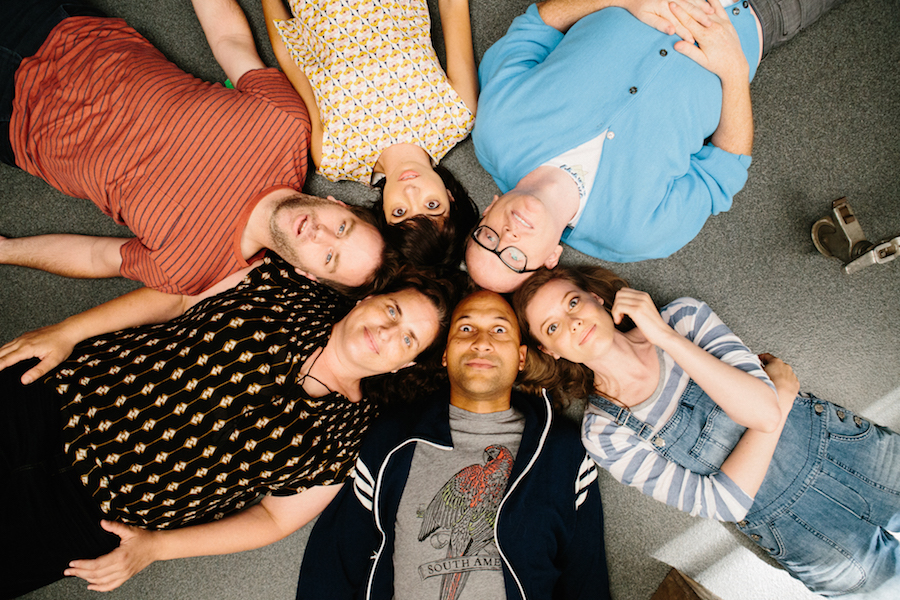‘Don’t Think Twice’ In “Don’t Think Twice,” a dramedy about comedy, community is both an inspiration and a straightjacket. The heroes of writer, performer and “This American Life” staple Mike Birbiglia’s second feature film are members of The Commune, a lowly New York improv group, famous (or infamous) for having its members snatched up by a “Saturday Night Live”-esque show called (not very imaginatively) “Weekend Live.” Not everyone gets raptured, though. Many have been left behind, forced to work menial jobs while feeding their real passion at night. The ones that remain have formed a bubble, one that protects them from the harsh reality of failure, disappointments, even maturity and, in some cases, the nagging suspicion that they never really had “it” in the first place. Then the bubble pops. First, the troupe learns that the NoHo theater that houses their shows is, like so many of the city’s bohemian wares, set for demolition. (In a too on-the-nose joke that isn’t, thankfully, typical of the film’s humor, it’s going to become a Trump building — though, to its credit, the film was shot before the gag’s target became the Supreme Being.) Next, one of them, Keegan-Michael Key’s Jack, becomes the next one summoned to the big leagues. What follows is a quietly devastating and exacting portrait of a tight-knit group splintering. Previously, the Commune were able to eke by, content even if they didn’t “make it,” not even thinking to hatch a Plan B. Now they’re blinded by the hard light of day. Birbiglia’s Miles, the group’s de facto ringleader and perpetual “mentor” to talents who go next level, suddenly realizes he may be too old to succeed. Depresso Bill (Chris Gethard) anguishes over a possibly dying father. Even Jack suffers, finding that life at the top is no picnic. Severed from his group and cast into the grueling spotlight, he fends off loneliness, all while unable to work up the nerve to address his collapsing relationship with live-in-girlfriend and Commune lifer Samantha (Gillian Jacobs). RELATED:Mike Birbiglia and Chris Gethard capture funny on the fly Birbiglia’s previous work has tended towards one-man shows; even his first movie, “Sleepwalk with Me,” was almost entirely concerned with his stand-in character. Forcing himself to write for an ensemble really opens him up, though he’s even tougher on a group of neurotics than he was on “himself.” He refuses to offer bland comfort for his wayward characters, and he never takes sides. When Jack leaves the group, we can see from Key’s masterful, tightly wound body language all but screams, “I want to cut ties with them so badly.” On the other, when his old gang watch his live television bow, they do so with such critical glee (“It’s like when something sounds funny but isn’t,” one cracks) you can tell they’re weirdly relieved that he’s only done OK. Blunt honesty is in right now, and “Don’t Think Twice” fits right in with shows like “BoJack Horseman” and “Crazy Ex-Girlfriend” — very funny comedies that center around failure and misery and depression, delivered without the salve of a soothing, easy redemption. “Don’t Think Twice” does have a happy ending, but only of sorts and not the kind its characters would have wanted. Most of the time, the heroes of “Don’t Think Twice” joke to keep life at bay, both on-stage and off. Such levity can be healthy, but it can also be limiting. They perpetually address the elephant in the room without shooing it out. “I feel like your 20s are all about hope,” Bill half-jokes late in, “and your 30s are all about how dumb it was to hope.” Birbiglia’s film understands that a downer line like that can be perversely comforting, especially when your closest friends and allies are feeling the same way. But Bill doesn’t hatch a solution; the film knows what how soothing it is to stew in self-pity. Birbiglia has created a gutting and useful look at how being forthright about a problem isn’t the same as fixing it.
Director: Mike Birbiglia
Stars: Keegan-Michael Key, Gillian Jacobs
Rating: R
4 (out of 5) Globes
‘Don’t Think Twice’ is a gutting look at struggling comedians

The Orchard
Follow Matt Prigge on Twitter @mattprigge


















